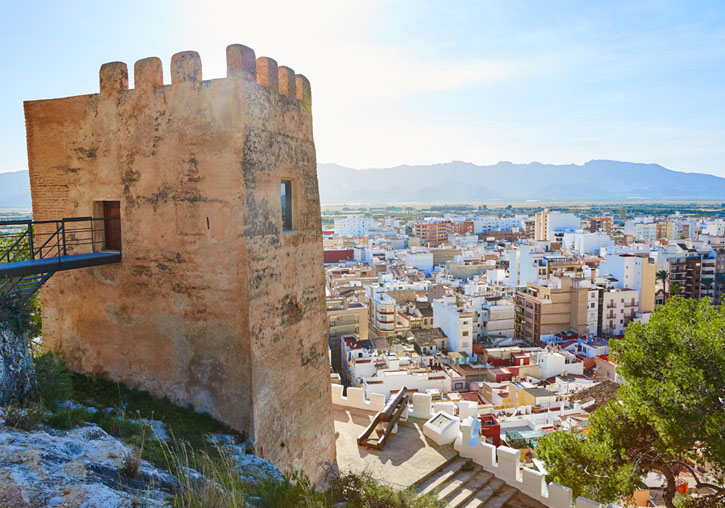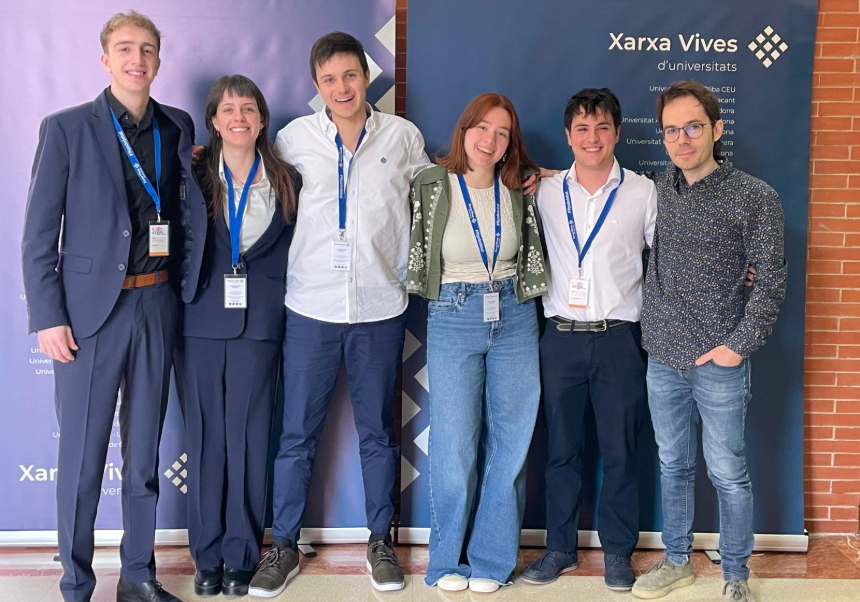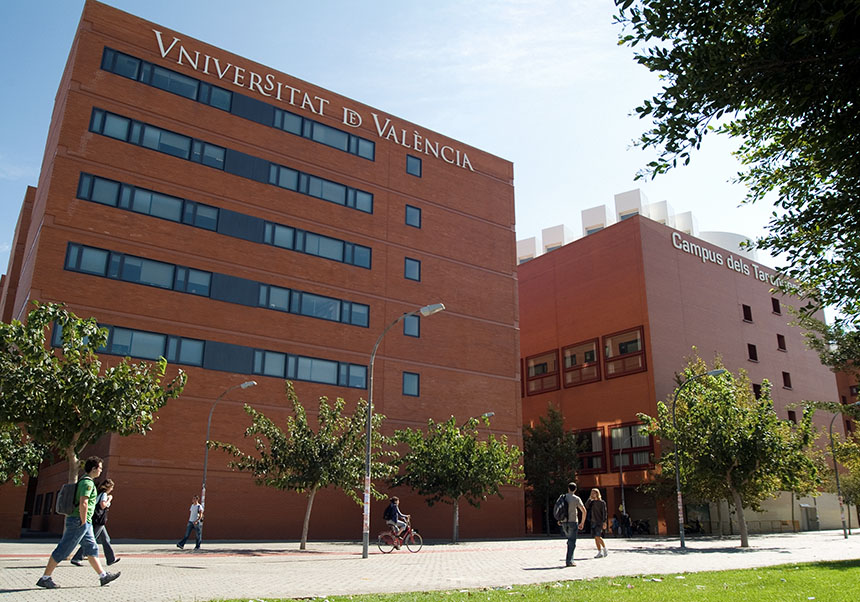The Spring University of Cullera launches its 2nd edition ‘A Look to Heritage and Tourism under the Sea’.

The Spring University of Cullera will debate this Thursday on its subaquatic archaeological heritage as a driver of tourism in the town and its region. The conference is a continuation of the Spring sessions of the Seasonal Universities, an initiative of the UV aimed at discussing the most unique aspects of each territory in free sessions open to all citizens.
The Spring University of Cullera is holding its 2nd edition this Thursday morning, 29 April, to launch ‘A Look to Heritage and Tourism under the Sea’, a continuation of the Seasonal Universities 2021 programme.
Seasonal Universities are an initiative of the University of Valencia (UV), organised through the Office of the Vice-Principal for Territorial Projection and Society together with the town councils of each town and in collaboration with the Diputació de València and Caixa Popular. Its aim is to promote debate on a monographic topic linked to the singularity of each geographical area, taking its particular idiosyncrasy, history and culture into account, under the coordination of a specialist in the field. This academic action is already in all the regions of the province, with 20 editions in as many localities, guaranteeing its presence throughout territory.
In 2021, these free conferences, open to citizens of all ages, have recovered the link with the season that names them, after an anomalous year due to the restrictions of the pandemic. In addition, they maintain the distribution by thematic areas, which reflect the UV cross-cutting knowledge and the plurality of topics studied by its specialists. They will also be blended, as in 2020 with the incorporation on the online link that allows the sessions to be followed by streaming, facilitating attendance for those interested. As in 2020, the UV will offer registration through the website and will provide the corresponding certificate of attendance, whether in person or online.
Spring University of Cullera
This year, the Spring University of Cullera is holding its second edition in the Municipal Auditorium (Plaça de la Verge, 16), under the title ‘A Look to Heritage and Tourism under the Sea’ with the collaboration of the Cullera Town Council, the Diptuació de València and Caixa Popular.
The focus of this edition -which is part of the thematic area ‘Historical and Cultural Heritage’- is the subaquatic archaeological heritage as a driver of tourism in Cullera and its region. The subaquatic heritage was recognised by the UNESCO Convention of 2001 as a heritage that needs better protection, knowledge, enhancement and social return. It is an extremely rich heritage, but, at the same time, fragile, vulnerable and able of promoting an alternative tourism to more traditional ones, such as sun and beach tourism, which is already well established. It is precisely the interesting history that Cullera treasures under the sea that is being debated in the current edition of this Spring University, which highlights its capacity to promote tourism in the region.
The conference will be a multidisciplinary window to knowledge and reflection upon this little discussed topic. It is aimed at business people, academics, public sector workers, inhabitants, students, associations and audiences of all ages.
The session will open at 09:00am, with the intervention of Jordi Mayor Vallet, mayor of Cullera; Jorge Hermosilla Pla, Vice-Principal for Territorial Projection and Society of the UV; Walesska Schelesinger and Raquel Faubel Cava, coordinators of the Spring University of Cullera; Lorena González Cano, director of the Caixa Popular Office in Sueca; and a representative of the Diputació de València.
This will be followed by a lecture by Carlos de Juan Fuentes, co-director of the Postgraduate Diploma in Nautical and Subaquatic Archaeology at the UV, entitled ‘Diving, Tourism and Subaquatic Cultural Heritage. International Examples of a Practice Endorsed by UNESCO’. Afterwards, Carmen Pérez Cabañero, from the UV Department of Marketing and Marked Research, will speak on ‘The Design of Touristic Experiences Related to Subaquatic Heritage’.
After a break, Raquel Faubel Cava will moderate a colloquium entitled ‘Subaquatic Heritage: Perspectives, Dissemination and Protection’, with the participation of Asunción Fernández Izquierdo, director of the Centre for Subaquatic Archaeology of the Valencian Community of the Generalitat Valenciana; Kike Gandia Álvarez, municipal archaeologist and director of the project of the Portum Sucrone project of the City Council of Cullera; Beatriz Belando Garín, from the UV Department of Administrative and Procedural Law; and Agustín Díez Castillo, from the UV Department of Prehistory, Archaeology and Ancient History.
A round table, moderated by Walesska Schelesinger, will open on debate ‘Initiatives for Underwater Tourism and Sports Leisure’. Ester Valero Rello, promotion technician of diving tourism at Turisme Comunitat Valenciana of the Generalitat Valenciana; José Antonio Puig Olmo, director of the Delfín Subaquatic Activities Centre in Cullera; Antonio Civantos Torralba, director of the Barracuda Subaquatic Activities Centre in Alcocéber; and Penélope López Benito, co-director of the Ali-Sub Diving Centre in Villajoyosa, will take part in the debate.
The Spring University of Cullera’s 2nd edition will close at 01:30 pm.
20 Seasonal Universities, 4 Seasons and 3 Thematic Areas
The Seasonal Universities programme includes two Winter Universities, which have already held their corresponding sessions: Cofrents and Requena.
The Spring Seasonal Universities programme, after this week’s Alzira edition, will continue on 29 April with the Seasonal University of Cullera, with ‘A look to heritage and tourism under the sea’ as the topic of debate. The Seasonal University of Xàtiva will analyse, on 13 May, ‘Governance and management of cultural tourism’; the Seasonal University of Sagunt, on 20 May, ‘Consequences of the Covid-19 pandemic on women and girls’; the Seasonal University of the Canal de Navarrés, on 28 May, ‘Rural development against depopulation in inland municipalities'; the Seasonal University of Alt Túria, on 11 June, ‘From territorial resource to touristic product in a biosphere reserve’; and the Seasonal University of the Racò d’Ademuz, on 21 June, ‘Rural landscapes: Sustainable tourism products’.
Summer Seasonal Universities will start on 7 July with the Seasonal University of Aras de los Olmos, whose main theme will be ‘Botany and rural development’. The Seasonal University of Gandia will debate, starting on 12 July, on ‘Changes. A kaleidoscopic look’; and the Seasonal University of Sagunt, on 15 September, on ‘Sagunt: World Heritage Site. Between myth and cultural legacy'.
Autumn Seasonal Universities will close the 2021 programme. The Seasonal University of Alaquàs, will open the cycle on 7 October, with the theme ‘The Horta at the crossroads: some crucial historical decisions.’ The Sesonal University of Bunyol, on 15 October, will be entitled ‘Bunyol. Cultural heritage. Music as a driver of social change’; the Seasonal University of l’Eliana, on 21 October, ‘Smart cities: technology and citizenship’; the Seasonal University of Oliva, on 27 October, ‘Education: Equal and diverse’; the Seasonal University of Llíria, on 29 October, ‘Music as educational tool of social transformation’; the Seasonal University of Ayora, on 4 November, ‘Challenges and threats of beekeeping in the 21st century’; the Seasonal University of Enguera, from 11 November, ‘Professions of the future and healthy living in a global and sustainable world’; and the Seasonal University of Ontinyent, from 23 November, ‘Times of transformations’.
This year 2021, Seasonal Universities will debate on multiple aspects linked to each territory around three thematic areas: ‘Historical and Cultural Heritage’ (Cullera, Xàtiva, Sagunt, Alaquàs, Bunyol and Ayora); ‘Education and Social Welfare’ (Cofrents, Sagunt, Llíria, Oliva, Enguera and Ontinyent); and ‘Biodiversity, Territorial Development and Innovation’ (Requena, Alzira, Canal de Navarrés, Alt Túria, Racò d’Ademuz, Aras de los Olmos, Gandia and l’Eliana).
















